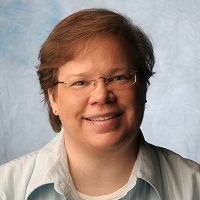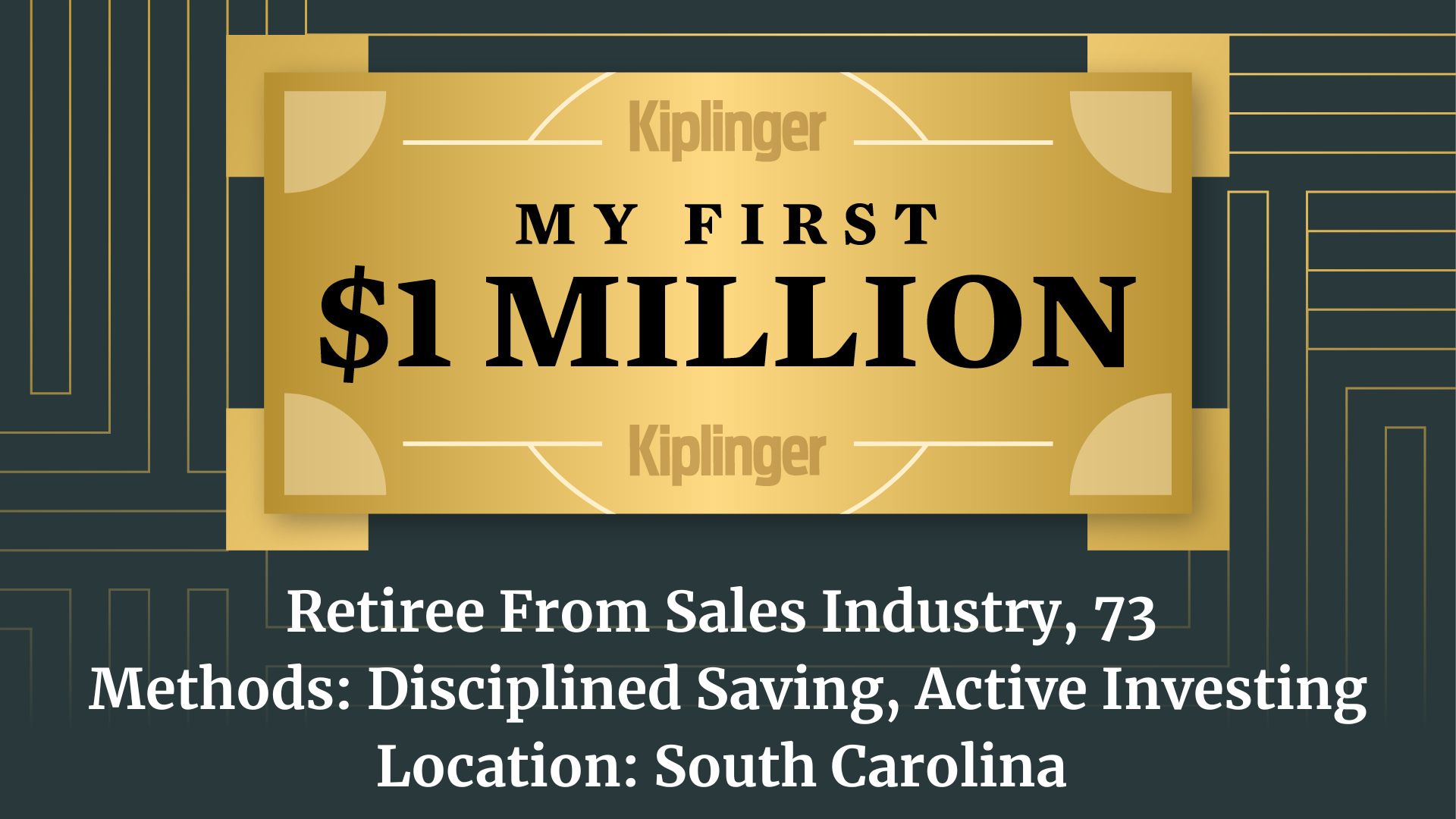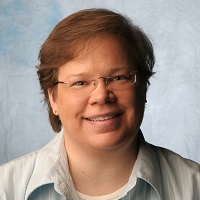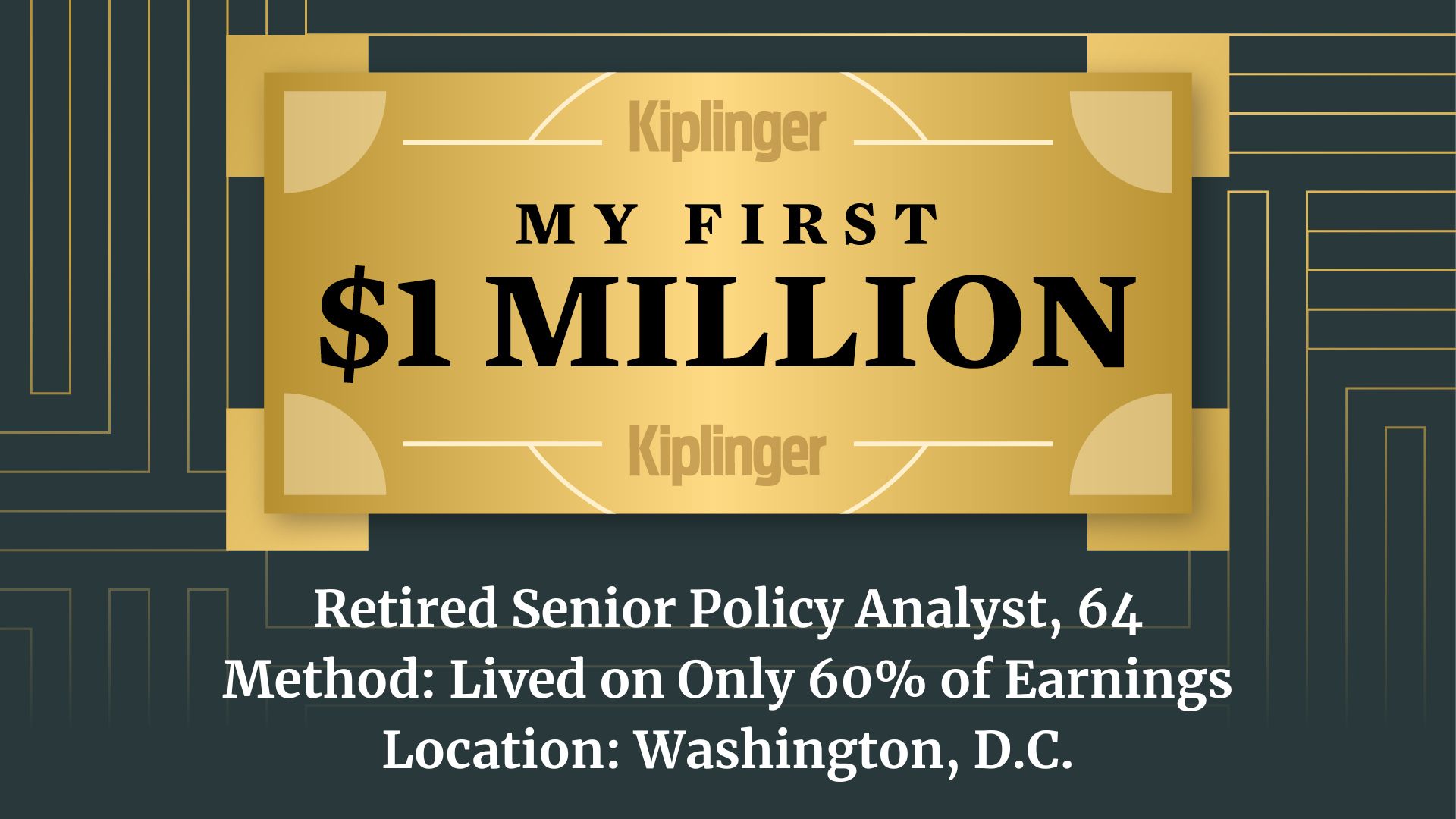My First $1 Million: Retiree From Sales Industry, 73, South Carolina
"We have always been disciplined savers, active investors, always lived below our means and never carried any credit card debt. Our first million was just an accumulation of all of the above."


Profit and prosper with the best of Kiplinger's advice on investing, taxes, retirement, personal finance and much more. Delivered daily. Enter your email in the box and click Sign Me Up.
You are now subscribed
Your newsletter sign-up was successful
Want to add more newsletters?
Welcome to Kiplinger's My First $1 Million series, in which we hear from people who have made $1 million. They're sharing how they did it and what they're doing with it. This time, we hear from a 73-year-old married retiree based in South Carolina. He has three children, nine grandchildren and only just recently retired from the sales industry.
See our earlier profiles, including a writer in New England, a literacy interventionist in Colorado, a semiretired entrepreneur in Nashville and an events industry CEO in Northern New Jersey. (See all of the profiles here.)
Each profile features one person or couple, who will always be completely anonymous to readers, answering questions to help our readers learn from their experience.
From just $107.88 $24.99 for Kiplinger Personal Finance
Become a smarter, better informed investor. Subscribe from just $107.88 $24.99, plus get up to 4 Special Issues

Sign up for Kiplinger’s Free Newsletters
Profit and prosper with the best of expert advice on investing, taxes, retirement, personal finance and more - straight to your e-mail.
Profit and prosper with the best of expert advice - straight to your e-mail.
These features are intended to provide a window into how different people build their savings — they're not intended to provide financial advice.
THE BASICS
How did you make your first $1 million?
Making a million was never an objective. We have always been disciplined savers, active investors, always lived below our means and never carried any credit card debt.
Making our first million was just an accumulation of all of the above. It was never about the dollars, more about the accomplishment.
What are you doing with the money?
Currently, we really are not doing anything different. Still saving, investing, living below our means and no credit card debt.

However, we are actively working with an estate attorney to build a financial legacy for our children and future generations, as well as a charitable legacy that will make charitable contributions long after we are gone.
THE FUN STUFF
Did you do anything to celebrate?
Not that I can remember. It just kind of snuck up on us. I think it happened back in the early 2000s, some 20-plus years ago. I'm sure I called my father.

My wife and I probably kissed, gave each other high fives, then woke up the next morning and went to work, raised our children and got on with life.
What is the best part of making $1 million?
Having a million in a brokerage account certainly offers a great deal of security and financial independence. It allowed us to look beyond just our immediate financial needs and to focus on long-term needs and to be strategic in our long-term planning for generational wealth and charitable giving.
Going forward, one of the greatest unexpected results was the rate of acceleration to reach additional levels of wealth. I may not know the day we reached our first million, but I do remember the year when the growth of our stock portfolio exceeded our annual salaries.
Then later, there was the month when the growth in our stock portfolio exceeded our annual salary. Then the week, and now there are days that our stock portfolios' growth exceeds our annual salaries.

And then last year, our stock portfolio growth exceeded the accumulation of our 50-year working career income. We are sincerely grateful, overwhelmed and humbled by this whole process.
Did your life change?
Not really. We still live in the same home we purchased 40 years ago. Still buy late-model used cars, still saving and investing.
Did you retire early?
No, just retired this year at 73, after a 50-year working career. I was fortunate to have worked with great people, representing wonderful manufacturers, selling products and services that brought exceptional value to our customers.
What are your retirement plans?
Actually, before retiring, we began traveling more and plan to continue taking a domestic and an international trip each year.

We are looking forward to spending meaningful time with family and friends.
Also, I am involved with a nonprofit that works with young adults to introduce them to proven financial principles and concepts that will give them the information and knowledge to make sound financial decisions and to grow personal wealth.
LOOKING BACK
Anything you would do differently?
Not really. No regrets.
Did you work with a financial adviser?
Occasionally, from time to time, we worked with a financial adviser, but we haven't in years. I do, however, enjoy working with Jennifer Torres, a senior wealth manager at Charles Schwab. She is very supportive and a wonderful resource. I highly recommend her.
Did anyone help you early on?
Absolutely, I was fortunate to have grown up in a family where financial discipline and responsibility were lived out each day. I don't remember any formal instructions, but I do remember those opportunities for learning that my parents took full advantage of.
I may have been 10 to 12 years old, and my passion was baseball. I had an old hand-me-down baseball glove from a cousin that was probably handed down to him. It was terrible, worn out and falling apart.

I went to my dad and asked if he would purchase me a new glove. Seeing an opportunity for instruction, my father offered to pay half, and I would be responsible for the balance from my weekly allowance.
I do not remember how much my allowance was. However, I do remember that the first 10% went in the offering plate at church each Sunday, the second 10% went in a savings account, and the balance was all mine to splurge as I saw fit.
Given this opportunity, I was confronted with some choices. I couldn't continue purchasing more baseball cards, enjoying the Coke and cinnamon bun on my way home from school each afternoon and my weekly splurge, the after-lunch Popsicle on Fridays, if I ever hoped to save enough to purchase a new baseball glove.
Several lessons learned:
- Setting priorities
- Wants vs needs
- Deferred gratification
LOOKING AHEAD
Any advice for others trying to make their first $1 million?
Start early. The secret is investing consistently over a long time. Remember, the first million is the hardest.
If you are fortunate to have children or grandchildren, consider setting up a custodial Roth IRA when they get their first job as a teenager.
I know it's not the "cool" clothes or the "hot" car. However, it is a gift that grows in value and will have a significant influence on their financial futures. They will thank you later.

Do you have an estate plan?
Yes. This is something our accountant encouraged us to do some years ago. Very informative and encouraging. A must as personal wealth grew.
If you have made $1 million or more and would like to be anonymously featured in a future My First $1 Million profile, please fill out and submit this Google Form or send an email to MyFirstMillion@futurenet.com to receive the questions. We welcome all stories that add up to $1 million or more in your accounts, although we will use discretion in which stories we choose to publish, to ensure we share a diversity of experiences. We also might want to verify that you really do have $1 million. Your answers may be edited for clarity.
RELATED CONTENT
- You're 62 Years Old With $1 Million Saved: Can You Retire?
- Want to Earn $1 Million More Over Your Lifetime? Do This
- Do You Have at Least $1 Million in Tax-Deferred Investments?
- Are You Rich? U.S. Net Worth Percentiles Can Provide Answers
- Compare Your Net Worth by Age
Profit and prosper with the best of Kiplinger's advice on investing, taxes, retirement, personal finance and much more. Delivered daily. Enter your email in the box and click Sign Me Up.

As Contributed Content Editor for the Adviser Intel channel on Kiplinger.com, Joyce edits articles from hundreds of financial experts about retirement planning strategies, including estate planning, taxes, personal finance, investing, charitable giving and more. She has more than 30 years of editing experience in business and features news, including 15 years in the Money section at USA Today.
-
 Thinking of Switching Phone Carriers? Do These 8 Things First
Thinking of Switching Phone Carriers? Do These 8 Things FirstSwitching carriers is easier than ever, but overlooking the fine print could cost you. Here’s what to check before you make the move.
-
 Samsung Galaxy S26 Ultra: What to Know Before You Upgrade
Samsung Galaxy S26 Ultra: What to Know Before You UpgradeThe Galaxy S26 Ultra brings new features and strong launch deals, but whether it’s worth upgrading depends on what you already own.
-
 Nasdaq Soars Ahead of Nvidia Earnings: Stock Market Today
Nasdaq Soars Ahead of Nvidia Earnings: Stock Market TodayWednesday's risk-on session was sparked by strong gains in tech stocks and several crypto-related names.
-
 What Is an Assumable Mortgage and Could It Save You Thousands?
What Is an Assumable Mortgage and Could It Save You Thousands?With mortgage rates still elevated, taking over a seller’s existing home loan could lower monthly payments — if the numbers work.
-
 Have You Fallen Into the High-Earning Trap? This Is How to Escape
Have You Fallen Into the High-Earning Trap? This Is How to EscapeHigh income is a gift, but it can pull you into higher spending, undisciplined investing and overreliance on future earnings. These actionable steps will help you escape the trap.
-
 I'm a Financial Adviser: These 3 Questions Can Help You Navigate a Noisy Year With Financial Clarity
I'm a Financial Adviser: These 3 Questions Can Help You Navigate a Noisy Year With Financial ClarityThe key is to resist focusing only on the markets. Instead, when making financial decisions, think about your values and what matters the most to you.
-
 Where Olympians Store Their Medals is a Great Lesson For Your Valuables and Cash
Where Olympians Store Their Medals is a Great Lesson For Your Valuables and CashWhat you can learn about protecting your cash and values from where Olympians store their medals.
-
 An Executive's 'Idiotic' Idea: Skip Safety Class and Commit a Federal Crime
An Executive's 'Idiotic' Idea: Skip Safety Class and Commit a Federal CrimeSeveral medical professionals reached out to say that one of their bosses suggested committing a crime to fulfill OSHA requirements. What's an employee to do?
-
 How You Can Use the Financial Resource Built Into Your Home to Help With Your Long-Term Goals
How You Can Use the Financial Resource Built Into Your Home to Help With Your Long-Term GoalsHomeowners are increasingly using their home equity, through products like HELOCs and home equity loans, as a financial resource for managing debt, funding renovations and more.
-
 How to Find Free Money for Graduate School as Federal Loans Tighten in 2026
How to Find Free Money for Graduate School as Federal Loans Tighten in 2026Starting July 1, federal borrowing will be capped for new graduate students, making scholarships and other forms of "free money" vital. Here's what to know.
-
 My First $1 Million: Retired Senior Policy Analyst, 64, Washington, D.C.
My First $1 Million: Retired Senior Policy Analyst, 64, Washington, D.C.Ever wonder how someone who's made a million dollars or more did it? Kiplinger's My First $1 Million series uncovers the answers.